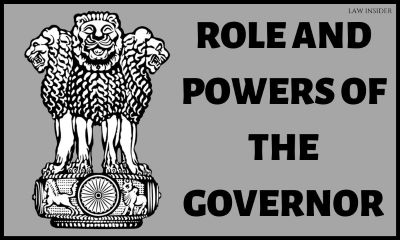Context-
The position of a Governor in India holds constitutional significance, demanding a certain decorum and adherence to the principles of governance. Recently, the Tamil Nadu Governor, R.N. Ravi, found himself embroiled in controversy due to his public statements concerning historical events surrounding India's struggle for independence. This incident underscores the importance of governors maintaining reticence and refraining from controversial discussions unrelated to their constitutional duties.
The Governor's Controversial Statements
R.N. Ravi, a former member of the Indian Police Service with a background in physics and intelligence, ventured into the domain of historical interpretation, particularly surrounding India's fight for independence. His assertion that the Quit India movement had minimal impact on the British decision to leave India, and instead, it was the insecurity stemming from events like Subhas Chandra Bose's Azad Hind Government and the Naval Mutiny, stirred significant debate. Ravi purportedly based his views on insights gleaned from Intelligence Bureau files, drawing attention to a conversation between British Prime Minister Clement Attlee and a Bengal Governor, where Attlee cited the Naval Revolt and Air Force Rebellion as key factors influencing the British departure.
Critique of the Governor's Perspective
While Ravi's statements acknowledge the contributions of figures like Subhas Chandra Bose, they reflect a deviation from the traditional historical narrative, triggering a backlash from various quarters. Critics argue that Ravi's assertions lack comprehensive historical analysis and may inadvertently downplay the significance of movements like Quit India led by Mahatma Gandhi and other stalwarts of the Indian freedom struggle.
Historical Context and Contrary Opinions
The complexities of India's struggle for independence demand nuanced analysis, considering the multifaceted efforts of various leaders and movements. While acknowledging the role of Subhas Chandra Bose and the INA, it is imperative to recognize the broader spectrum of contributions made by leaders like Gandhi, Nehru, and others. Historical events such as the INA trials indeed galvanized public sentiment, but attributing the entire British departure solely to these incidents oversimplifies a complex historical process.
Governors and Public Discourse: The Importance of Restraint
The controversy surrounding R.N. Ravi underscores the delicate balance governors must maintain between their personal views and public responsibilities. As constitutional authorities, governors are expected to exercise discretion and refrain from engaging in contentious debates that may undermine the integrity of their office. Reticence, rather than public pronouncements, should guide their conduct, particularly on sensitive historical and political matters.
Lessons from Governance and Civil Service
Given Ravi's background as a civil servant, the expectations surrounding his conduct as a governor are heightened. The principles of governance, cultivated through years of service, emphasize the importance of discretion, neutrality, and adherence to constitutional norms. Ravi's foray into historical interpretation highlights the challenges associated with transitioning from bureaucratic roles to positions of political authority.
The Role of Historical Interpretation in Public Discourse
The debate sparked by Ravi's comments underscores the enduring relevance of historical interpretation in shaping public discourse and national narratives. Historical events are subject to diverse interpretations, often reflecting ideological perspectives and political agendas. However, in the realm of governance, historical analysis should transcend partisan considerations, focusing instead on fostering unity, understanding, and reconciliation.
Reaffirming the Contributions of National Leaders
While acknowledging the contributions of leaders like Subhas Chandra Bose, it is imperative to recognize the collective efforts of all participants in India's struggle for independence. The diverse ideological orientations within the freedom movement underscore the richness and complexity of India's historical narrative, emphasizing the need for inclusive commemoration and recognition of diverse voices.
The Imperative of Constitutional Decorum
As custodians of constitutional integrity, governors occupy a unique position within India's democratic framework. Their actions and statements carry significant weight, influencing public perception and political discourse. In exercising their authority, governors must prioritize the principles of impartiality, restraint, and adherence to constitutional norms, safeguarding the sanctity of democratic governance.
Conclusion
The controversy surrounding R.N. Ravi's statements serves as a poignant reminder of the delicate balance governors must maintain between personal convictions and public responsibilities within the Indian democratic framework. As custodians of constitutional integrity, governors are entrusted with upholding the sanctity of democratic governance and fostering an environment conducive to inclusive commemoration and historical understanding.
The imbroglio underscores the imperative of exercising discretion and restraint in public discourse, particularly on sensitive historical and political matters. Ravi's departure from the traditional historical narrative highlights the complexities inherent in interpreting India's struggle for independence and the diverse contributions of its leaders and movements.
While historical interpretation remains subject to diverse perspectives and ideological leanings, governors must prioritize the principles of impartiality and inclusivity in shaping public discourse. By reaffirming the contributions of national leaders and recognizing the richness of India's historical narrative, governors can foster unity, understanding, and reconciliation within society.
Ultimately, reticence, tempered with a commitment to constitutional decorum and historical appreciation, should guide governors in fulfilling their duties. In upholding the dignity and integrity of their office, governors play a pivotal role in preserving democratic values and promoting harmonious coexistence in a pluralistic society. As India navigates its past and present, governors must remain steadfast in their commitment to upholding the principles of democratic governance, ensuring that public discourse remains grounded in truth, inclusivity, and mutual respect.
|
Probable Questions for UPSC Mains Exam-
|
Source - The Hindu







